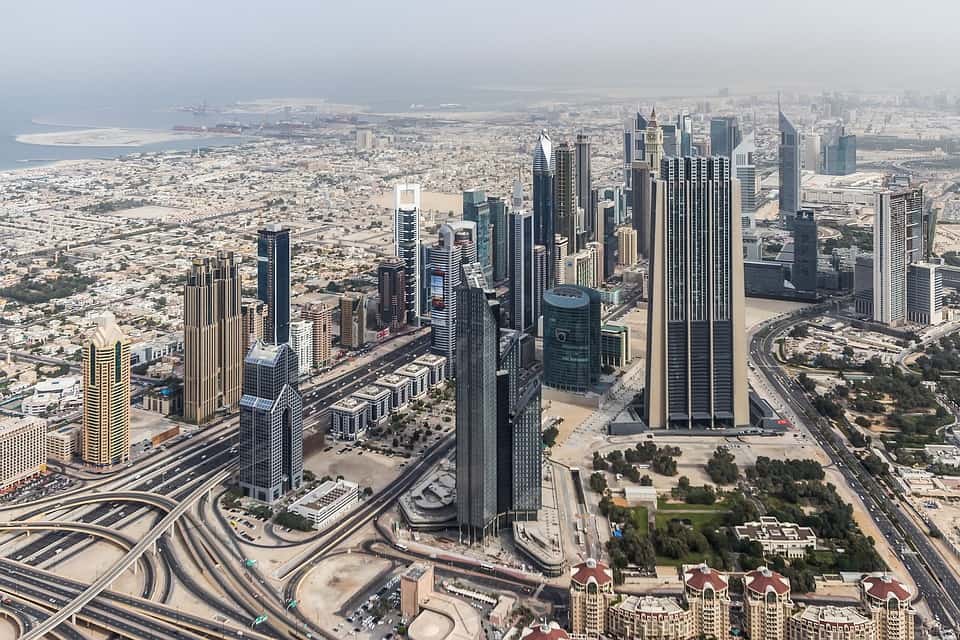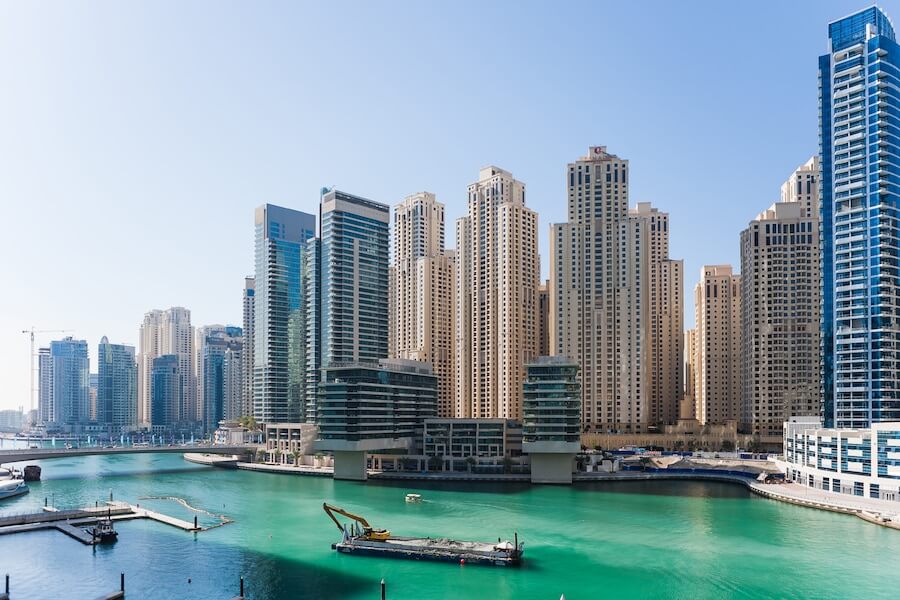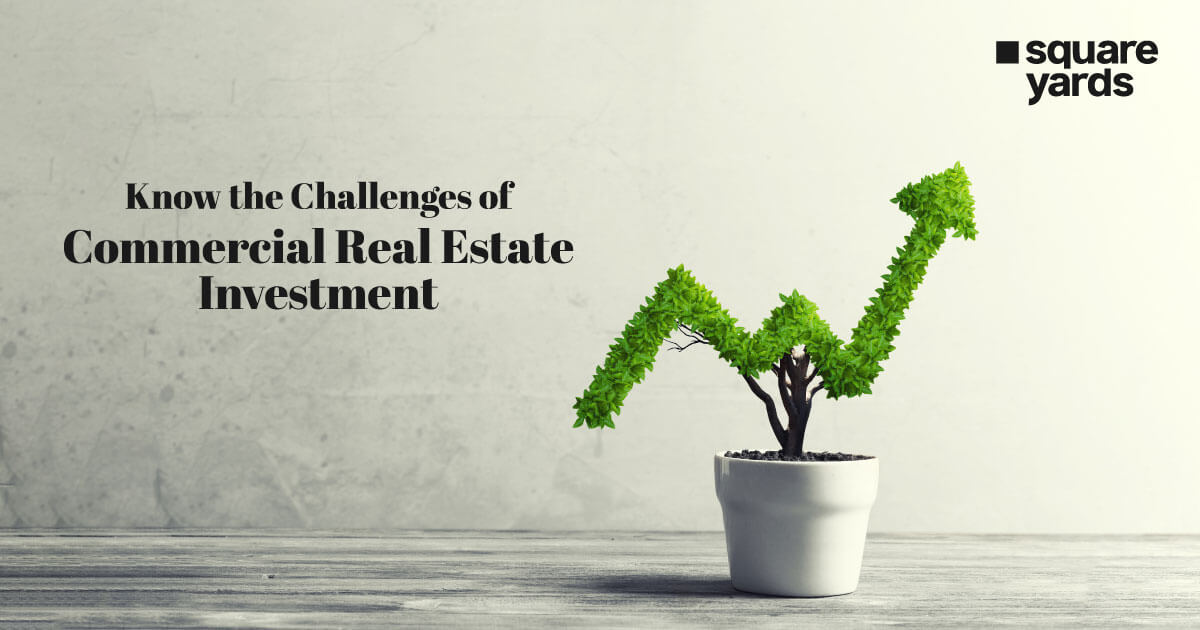Real estate is more than just buildings! It is also about how we are going to use it. While most of us go into real estate to buy, some people go for the investment angle. So, if you are considering investing in commercial real estate, you are in the right place. This simple guide is here to help you understand the basics of the commercial world. We’ll talk about different types of properties, how the market works, and what to consider, especially if you’re interested in the UAE. The advantages and disadvantages of investing in commercial real estate investment have also appeared in this blog. So, whether you’re looking for stability or more profits, this guide will give you the knowledge to start your journey.
Starting – Commercial Real Estate Investing
If you’re thinking of breaking your piggy bank for commercial real estate (CRE), here are a few simple steps to kickstart your journey. First, learn about different types of properties and how the market works. While looking for options, figure out what you want to achieve! How much real estate risk are you with real estate, and what are the expected profits from your option selection? These are also things to acknowledge. After your online hunch, you can talk to people who know the ropes. Sometimes, the theory is too different from practical life, so exhausting all your options is important. Lastly, check if your finances are ready. Account for what you have and how much you can take from the market. Make sure the money you need comes from a safe space. This one is for your defence! Think about possible problems and how to handle them. Get advice from experts like real estate pros and know how to tackle potential hurdles.
Key Considerations for Investing in Commercial Properties in UAE

Now that you know the road map, let’s pen down the route of commercial property investments in the UAE. As said earlier, Know the different types of commercial real estate, like offices and warehouses. Understand that the UAE’s strong economic growth is driven by tourism and trade. These are just examples; you still need to fetch a lot! Check out the market trends! Right now, industrial spaces are doing well, but the online availability of products and services is suffocating retail spaces. The silver lining is that the UAE is known for being business-friendly. This country has tax incentives and easy setup procedures. Next, explore the advantages of free zones! This is a place where foreigners can have 100% ownership and enjoy zero taxes on the property. If you are an outsider, free zone property can come in handy. Look into the rental income potential, especially in free zone areas like Dubai. Even though you get the property for free, it will be a good use if it’s in a good place. Consider the overall economic stability of the region, its infrastructure, and its amenities.
-
Advantages of Investing in Commercial Real Estate

Investing in commercial real estate (CRE) comes with several key advantages.
-
-
Higher Returns
-
One major benefit is the potential for higher returns compared to residential properties. Commercial properties often yield attractive rental income.
-
-
Tax Benefits
-
Tax benefits are another advantage. CRE investors can take advantage of depreciation, allowing for deductions on income taxes. This helps retain more money by lowering the tax burden. The 1031 exchange is also a valuable tax instrument.
-
-
Better Stability in Business-Friendly Environment
-
Long-term contractual leases add stability. Commercial properties with extended leases provide a reliable income stream and shield investors from short-term market fluctuations. Additionally, the value of real estate tends to depreciate over time.
-
-
Potential Rental Income
-
Diversification is a key strategy in CRE. Unlike residential real estate, which may rely heavily on individual homeowners, commercial properties often have multiple tenants.
-
Disadvantages of Investing in Commercial Real Estate
While commercial real estate (CRE) has its merits, there are important disadvantages.
-
-
High Capital Requirements
-
Higher upfront costs associated with commercial properties is the biggest challenge. The initial investment and add-on expenses can be a big bump for some investors.
-
-
Economical and Environmental Risks
-

The performance of commercial properties can be sensitive to economic conditions and trends. Economic crashes can hit commercial real estate sectors harder than other forms of businesses.
-
-
Management Responsibilities
-
Management responsibilities in CRE are more demanding than in residential real estate. Larger spaces, multiple tenants, and accounting needs may require you to invest in a professional property management, thus a subtle increase in expenses.
-
-
Regulatory and Legal Complexity
-
Law is hard, especially when you are the only one handling it! Navigating complex laws, regulations, and zoning codes is also challenging for commercial property owners.
-
-
Limited Liquidity
-
Liquidity can be the last but the largest issue of the list. Selling a commercial property may take longer compared to a residential property. High vacancy rates in certain sectors can also risk consistent rental income.
Key Points to Know About Investing in Commercial Real Estate
When diving into commercial real estate (CRE) investment, it’s a must to grasp the key points:
-
Property Types
Commercial real estate encompasses diverse property types, such as offices, retail spaces, warehouses, and industrial complexes. Understanding the nuances of each kind is vital for informed decision-making.
-
Market Dynamics
Recognise that different market areas have unique supply and demand dynamics. Conduct thorough research on the specific geographic area where you intend to invest.
-
Market Cycles
Realise that the profitability of CRE is closely tied to economic factors. Understanding market cycles helps make informed decisions and avoid investments during market highs.
-
Due Diligence
The due diligence period is important. Thoroughly research investment opportunities, review financials, inspect properties, and assess potential risks.
-
Contingency Planning
Acknowledge the uncertainty in investments. Set aside cost contingencies for unexpected expenses and establish a capital reserve fund for long-term improvements or unforeseen costs.
-
Timeline Awareness
Be prepared for setbacks and extended timelines. Construction, renovations, and property improvements take time, and unforeseen challenges may arise.
Should You Invest In Commercial Real Estate?

Investing in commercial real estate (CRE) involves weighing various factors. CRE offers diversification benefits with multiple tenants and property types, potentially mitigating risks. The prospect of higher returns, especially in thriving business locations, and tax advantages like depreciation and the 1031 exchange. Stability is provided through long-term leases, yet investors should be mindful of increased management responsibilities. Consideration of the business-friendly environment and understanding your overall financial goals are essential in determining if commercial real estate aligns with your investment strategy.
Conclusion
Stepping into commercial real estate (CRE) needs careful thinking. It offers good things like more money and tax advantages, but there are challenges, too, like big upfront costs and more work to do. You should know about different types of properties and how markets work, and do your homework. In places like the UAE, industrial spaces are doing well. Doing good research, planning for unexpected problems, and knowing it takes time are crucial. CRE can be a good choice for your money plans if you’re ready for the work and ups and downs.
Recommended for you :
|
Know The Mortgaged Property in Dubai |
|
|
Guide To Renting a Commercial Space in Dubai |
|
|
Explore Dubai Commercial Property |
|
|
Commercial Trends of Dubai Real Estate |
Frequently Asked Questions (FAQs)
Risks include market volatility, economic downturns, high capital requirements, regulatory complexities, and property-specific challenges.
Commercial real estate offers tax benefits such as depreciation deductions and 1031 exchanges. Consult a professional for personalised tax advice.
Effective management involves overseeing leases, property maintenance, tenant relations, and financial performance. Many investors hire property managers for efficient operations.
Financing options include traditional mortgages, commercial loans, private lenders, and partnerships. Qualification criteria may be stricter, and interest rates vary. Explore options based on your financial situation. What are the risks of investing in commercial real estate?
What are the tax implications of commercial real estate investment?
How do I manage a commercial property investment?
How do I finance a commercial real estate investment?




